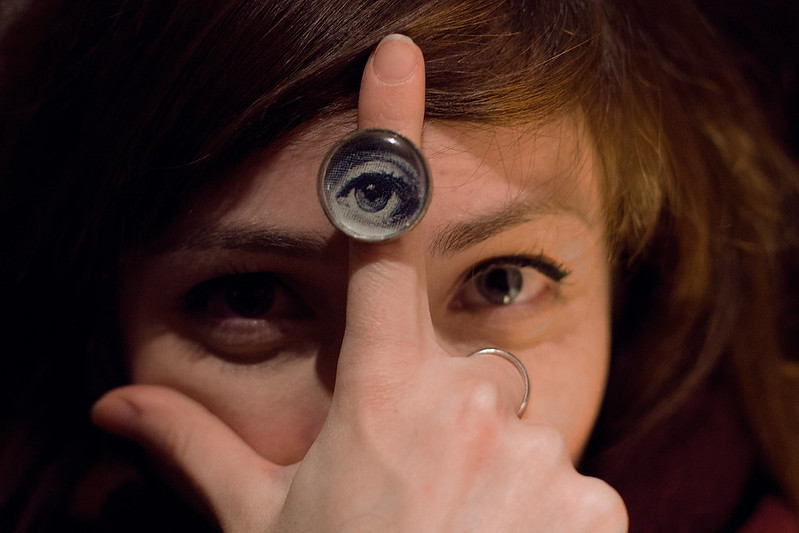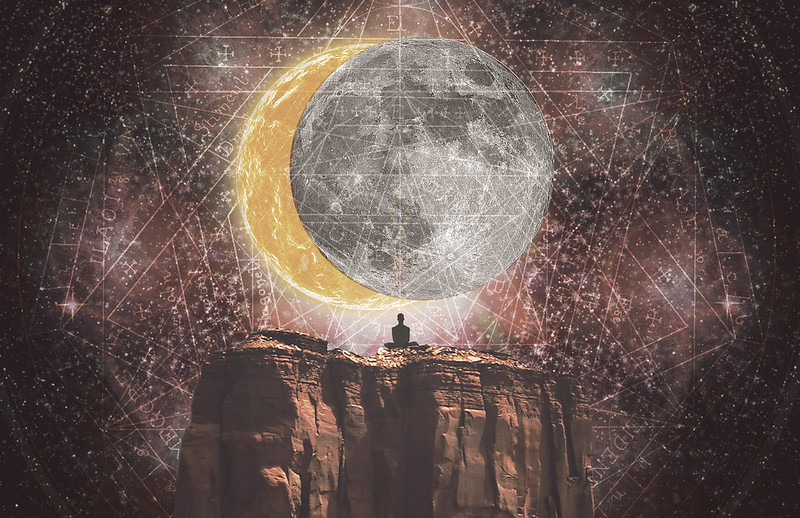
Most of my life, hypnosis was a therapeutic tool. As a trained hypnotherapist, I used it to help people quit smoking, manage pain, or release anxiety. It was clinical, practical, and grounded in science.
But last Friday, something unexpected happened. I experienced what mystics, poets, and philosophers call cosmic consciousness — a sudden awareness of a parallel universe that exists alongside our everyday reality.
It wasn’t imagination. It wasn’t metaphor. It was real. And it has changed the way I see everything.
In this post, I’ll share my first encounters with cosmic consciousness, explore the history of the term, and reflect on how hypnosis and Christianity both offer metaphors that point to the same reality.
Contents
- 1 What Is Cosmic Consciousness?
- 2 The Parallel Universe Feeling
- 3 Hypnosis and the Science of Metaphors
- 4 A Brief History of Cosmic Consciousness
- 5 My Hypnotherapy Training vs. My New Awareness
- 6 Why Cosmic Consciousness Can Be Dangerous
- 7 Christianity and Cosmic Consciousness
- 8 Cosmic Consciousness and Psychology
- 9 What It Means for My Life
- 10 Final Thoughts
- 11 Frequently Asked Questions About Cosmic Consciousness
- 12 Related Articles
What Is Cosmic Consciousness?
The term “cosmic consciousness” was popularized in 1901 by Canadian psychiatrist Richard Maurice Bucke in his book of the same name. Bucke described it as a higher state of awareness beyond self-consciousness — a sudden realization that the universe is alive, intelligent, and interconnected.
According to Bucke, cosmic consciousness brings with it:
- A sense of unity with all things.
- A perception of light, love, and truth.
- A profound inner peace and joy.
- The collapse of the boundary between “self” and “world.”
Mystics in every tradition describe something similar:
- Christianity: Union with God, being “in the Spirit,” or experiencing divine illumination.
- Buddhism: Enlightenment (nirvana) or glimpses of non-duality.
- Hinduism: Samadhi, the merging of the self with Brahman.
- Islamic Sufism: Fana, the annihilation of the ego in the divine.
Different words, different traditions — but the same human experience.
The Parallel Universe Feeling
When it happened to me, it felt like stepping into a parallel universe that had been hiding in plain sight.
Imagine living your whole life in a single room, convinced that’s all there is. One day, a hidden door cracks open, and you see that the house is vast — endless, even. That’s what cosmic consciousness feels like: suddenly realizing reality is bigger, deeper, and more alive than you ever suspected.
I’ve only had a few brief encounters so far. They come like lightning strikes — gone as quickly as they arrive. But in those moments, I feel connected to everything, filled with clarity, and overwhelmed by a peace that makes ordinary anxieties seem laughably small.
Hypnosis and the Science of Metaphors
Here’s where my hypnotherapy background comes in. Hypnosis is often seen as “mind tricks” or relaxation therapy. But in truth, it provides a scientific understanding of what religion often describes in metaphors.
Consider these parallels:
- “Be transformed by the renewing of your mind” (Romans 12:2) — hypnosis demonstrates how repeated suggestion rewires thought patterns.
- “Take every thought captive” (2 Corinthians 10:5) — hypnosis trains focus and awareness so that not every stray thought runs the show.
- “Faith comes by hearing” (Romans 10:17) — hypnosis proves that repetition and belief reshape inner reality.
Hypnosis shows that states of consciousness can be guided, shifted, and reprogrammed. Christianity frames it as spiritual renewal. Both are describing the same machinery — one in scientific terms, the other in metaphors of the soul.
Cosmic consciousness is what happens when that machinery opens beyond personal healing and brushes against the infinite.
A Brief History of Cosmic Consciousness
To understand where this idea comes from, it helps to look at the thinkers and mystics who shaped it.
- Richard Maurice Bucke (1901): Documented dozens of cases of cosmic consciousness, including his own, and argued it represents the next stage of human evolution.
- William James (1902): In The Varieties of Religious Experience, James described similar mystical states as “noetic” (filled with knowledge), “ineffable” (beyond words), and “transient.”
- Eastern Mystics: Centuries before Bucke, Indian yogis and Zen masters described enlightenment as dissolving the ego into pure awareness.
- Christian Mystics: Saints like Teresa of Avila, John of the Cross, and Meister Eckhart all wrote about ecstatic union with God that mirrors Bucke’s description.
In other words, cosmic consciousness isn’t new. It’s been with humanity for thousands of years — just wrapped in different language depending on culture.
My Hypnotherapy Training vs. My New Awareness
When I trained in hypnotherapy, the focus was strictly therapeutic. Inductions, anchors, regression therapy — all designed to help people change habits or heal trauma. And it works.
But none of that training prepared me for what happened last Friday. Hypnosis taught me how to navigate the shallow end of the mind. Cosmic consciousness threw me into the deep end of the soul.
The tools are the same — relaxation, focus, openness — but the territory is utterly different. Therapy deals with problems of this world. Cosmic consciousness points to realities beyond it.
Why Cosmic Consciousness Can Be Dangerous
Here’s where I need to add caution. Cosmic consciousness is intoxicating. Once you’ve glimpsed it, daily life can feel dull by comparison. You want to stay in that parallel universe forever.
But you can’t. And you shouldn’t.
I’ve already learned that different states of consciousness can destabilize me. Too much alpha brainwave activity once left me depressed. Too much beta had me anxious. Cosmic consciousness, if indulged recklessly, could lead to detachment from ordinary life.
That’s why I keep anchors:
- Prayer and journaling to stay grounded.
- Community and conversation so I don’t isolate in strange experiences.
- Humility to remember that glimpses aren’t mastery. They’re gifts.
Christianity and Cosmic Consciousness
Here’s where things get even more interesting. Christianity doesn’t use the phrase “cosmic consciousness,” but it speaks of something very similar:
- “In Him we live and move and have our being.” (Acts 17:28)
- “The peace of God, which surpasses all understanding, will guard your hearts and minds.” (Philippians 4:7)
- “We shall see Him as He is.” (1 John 3:2)
What Scripture describes metaphorically, cosmic consciousness describes experientially. Both are pointing toward union with something greater than the self.
Where Christianity differs is in emphasizing that this experience is not just abstract “universal intelligence,” but the living God. Cosmic consciousness can be seen as brushing the hem of His robe.
Cosmic Consciousness and Psychology

Psychology has its own language for this. Abraham Maslow described “peak experiences” — moments of intense joy, unity, and transcendence. Carl Jung wrote about the collective unconscious — a deeper field of shared archetypes that links us all.
Modern neuroscience shows that during mystical states, the brain’s default mode network (the part that maintains the sense of “me”) quiets down. The boundaries of self dissolve, allowing a feeling of oneness.
Science doesn’t invalidate cosmic consciousness — it validates it as a natural, though rare, capacity of the human brain.
What It Means for My Life
So what do I do with this?
I don’t claim to have answers. I only know that since last Friday, I can’t look at life the same way. I’ve seen through a crack in the wall, and I know there’s a vastness beyond it.
For me, the path forward looks like this:
- Keep practicing hypnosis and prayer as tools for self-awareness.
- Stay grounded in daily routines so I don’t float off into delusion.
- Treat cosmic consciousness as a teacher — a reminder that life is bigger than my struggles and fears.
Final Thoughts
Cosmic consciousness is not just a theory. It’s an experience — one that has been recorded by mystics, saints, and ordinary people for centuries.
As a hypnotherapist, I see it as the ultimate extension of what the mind is capable of. As a Christian, I see it as a glimpse of the divine.
I don’t know when or if I’ll experience it again. But I know this: even one brief encounter is enough to shift the way you see yourself, others, and the universe.
Maybe that’s all it’s meant to do — to remind us that we’re part of something infinite.
Frequently Asked Questions About Cosmic Consciousness

1. Is cosmic consciousness real or just imagination?
For those who experience it, cosmic consciousness feels more real than ordinary life. Philosophers, mystics, and even psychologists describe it as a genuine altered state of awareness, not fantasy. Neuroscience shows measurable changes in the brain during such states — particularly in the “default mode network,” which quiets down, allowing the sense of self to dissolve.
2. How do you experience cosmic consciousness?
There’s no guaranteed formula, but common pathways include:
- Deep meditation or prayer
- Hypnosis and trance states
- Peak life experiences (birth, death, awe in nature, art, or love)
- Near-death experiences
- Spontaneous awakenings
Most people don’t force cosmic consciousness — it tends to come uninvited, like a sudden crack in the sky. But spiritual practices increase receptivity.
3. Is cosmic consciousness the same as enlightenment?
They’re related but not identical. In traditions like Buddhism and Hinduism, enlightenment (nirvana or samadhi) is seen as a permanent awakening, whereas cosmic consciousness is often temporary — a glimpse rather than a permanent state. Think of it as opening a window into enlightenment rather than moving into the house full-time.
4. Is cosmic consciousness safe for Christians?
It depends on perspective. Some Christians worry that altered states can open the door to deception or pride. Others see cosmic consciousness as simply brushing against the reality of God’s presence. Scripture says, “In Him we live and move and have our being” (Acts 17:28). If approached with humility, prayer, and discernment, many believers view it as a gift, not a danger.
5. Can hypnosis lead to cosmic consciousness?
Yes, it can. While most hypnotherapy is used for practical purposes (habit change, pain relief, stress management), hypnosis opens the same doorway of focused attention that mystics use in meditation. In rare cases, it can expand beyond therapeutic goals into transcendent states.
6. How long does cosmic consciousness last?
It’s usually brief — anywhere from a few seconds to a few hours. Most people report it fading, but the aftereffects (a sense of peace, clarity, or expanded awareness) can last a lifetime.
7. Should I seek out cosmic consciousness?
Chasing it can backfire. Mystics across traditions often warn against making the experience itself the goal. Instead, focus on healthy spiritual practices — prayer, meditation, service, gratitude. If cosmic consciousness comes, it comes. If it doesn’t, those practices still enrich your soul.
8. What’s the purpose of cosmic consciousness?
That’s the million-dollar question. Some see it as evolution — the next step in human awareness. Others see it as God giving us a glimpse of eternity. At the very least, it reminds us that we are more than our jobs, routines, and anxieties. It points to a greater reality beyond the narrow lens of the everyday self.







